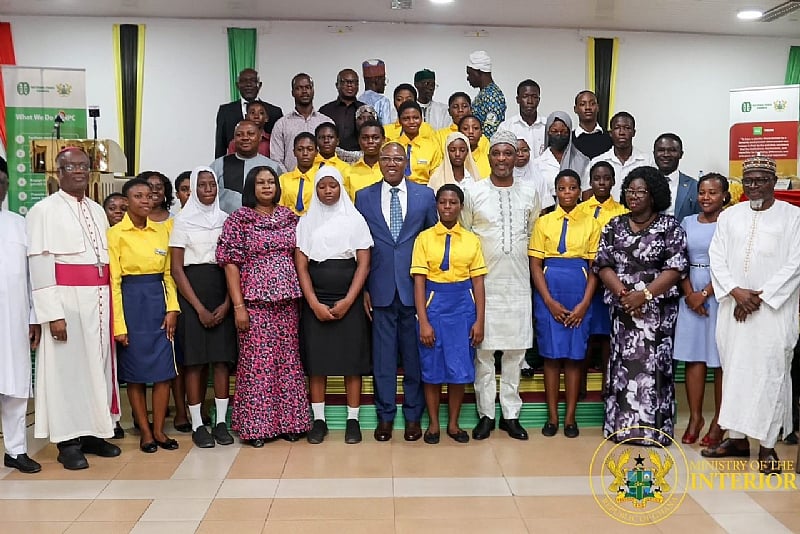The Ghanaian educational landscape has received a significant boost with the introduction of a Memorandum of Understanding (MoU) designed to foster religious tolerance within government-assisted and private schools. This landmark agreement, launched at the Mensvic Hotel in Accra, aims to safeguard the rights of all students, irrespective of their religious beliefs, ensuring an inclusive and respectful learning environment for everyone. Deputy Minister for Education, Dr. Clement Apaak, championed the MoU as a timely and crucial intervention to address potential discrimination and promote harmonious coexistence within educational institutions. He stressed the importance of education as a sacred space where every child deserves to feel valued, respected, and empowered to reach their full potential, regardless of their religious background. The MoU serves as a protective measure to uphold this fundamental principle, ensuring equitable access to education for all.
The genesis of this MoU stems from a recognition of past misunderstandings and conflicts that have occasionally arisen within schools, particularly those with religious affiliations. These incidents highlighted the need for a clear and comprehensive framework to guide the management of religious diversity within educational settings. The MoU provides this framework, offering practical guidelines for conflict resolution and fostering a more inclusive and tolerant atmosphere. By clearly defining acceptable practices and promoting mutual respect, the MoU seeks to preempt potential conflicts and ensure that schools remain spaces of learning and growth, free from religious bias and discrimination. It signifies a collaborative effort between the government and religious missions to establish common ground and create a more harmonious educational experience for all students.
Dr. Apaak emphasized that the MoU goes beyond simply outlining principles; it provides actionable strategies for implementation. It empowers schools to proactively address religious diversity and create an environment where students feel safe, respected, and free to pursue their academic goals without fear of prejudice. This active approach to promoting religious tolerance ensures that the MoU’s impact extends beyond theoretical ideals and translates into tangible improvements in the daily lives of students. It offers a practical toolkit for educators and administrators to navigate the complexities of religious diversity and build bridges of understanding between different faith communities within the school setting.
The Ministry of Education is committed to ensuring the widespread adoption and effective implementation of the MoU. In collaboration with key stakeholders, including the Ghana Education Service, the National Peace Council, and various mission authorities, the Ministry will launch comprehensive awareness programs. These programs aim to educate all members of the school community – students, parents, teachers, and administrators – about the provisions of the MoU and their practical implications. By fostering a shared understanding of the guidelines and their importance, the Ministry aims to create a unified commitment to religious tolerance and peaceful coexistence within schools. This collaborative approach ensures that the MoU becomes embedded within the fabric of the educational system.
The success of the MoU hinges on the collective responsibility of all stakeholders. Dr. Apaak urged parents, communities, and students to actively support the initiative, recognizing that fostering harmony in education requires a concerted effort from everyone involved. By embracing the principles of the MoU and actively promoting respect for religious diversity, individuals can contribute to creating a more inclusive and tolerant educational environment. This shared responsibility ensures that the MoU’s impact resonates throughout the community, fostering a culture of respect and understanding that extends beyond the school walls.
The introduction of this MoU marks a significant step towards creating a more equitable and inclusive educational system in Ghana. It provides a framework for managing religious diversity, resolving conflicts, and fostering mutual respect within schools. By empowering schools to proactively address religious differences and promoting a shared understanding of the importance of tolerance, the MoU lays the foundation for a more harmonious and enriching learning experience for all students. Its success will ultimately depend on the collective commitment of all stakeholders to uphold its principles and create a truly inclusive educational environment where every child can thrive, regardless of their religious background. The MoU represents a commitment to ensuring that education remains a sacred space for all.














